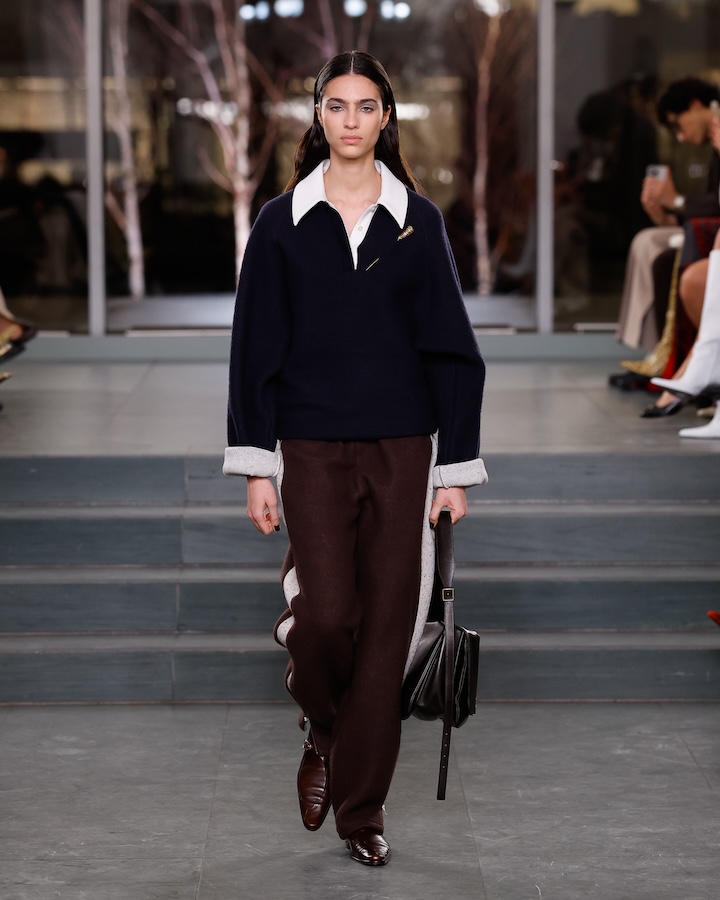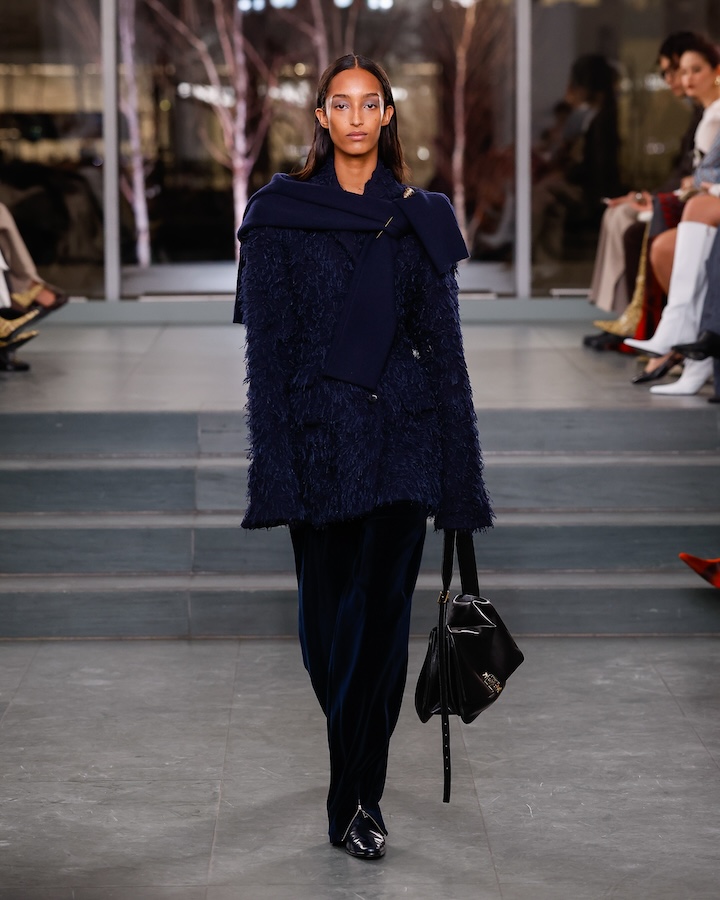DUBAI: Egyptian entrepreneur and jewelry designer Azza Fahmy is celebrated for crafting pieces that weave cultural stories into wearable art, resonating with those who appreciate depth and meaning in every design.
Fahmy’s signature gold-and-silver pieces have long been embraced by Egypt’s top entertainers, including the late actress and singer Soad Hosny and celebrated actress Yousra.
Her jewelry has also garnered an impressive international following, including A-list stars like actors Julia Roberts, Shailene Woodley, Naomi Watts, and Vanessa Hudgens, and singers Joss Stone and Rihanna.

Inside Azza Fahmy's recently opened flagship store in Riyadh. (Supplied)
The brand has also forged a particularly strong connection with Saudi customers, who value the blend of tradition and modernity it offers. It recently expanded its reach with the opening of a flagship store in Riyadh, catering to a growing Saudi clientele.
Fahmy’s daughters — CEO Fatma Ghaly and head of design Amina Ghaly — say the new outlet is the result of years spent cultivating relationships with Saudi clients.
“The opening of our flagship store in Riyadh marks a significant milestone for Azza Fahmy,” Fatma tells Arab News. “Throughout the years, we’ve had the privilege of cultivating meaningful relationships with our Saudi clientele, connecting through online platforms, exhibitions, and pop-ups, all while experiencing a growing demand for our jewelry.”

Inside Azza Fahmy's recently opened flagship store in Riyadh. (Supplied)
For Amina, the store is a continuation of her mother’s decades-long connection to Saudi Arabia, where she has often been inspired by the culture, architecture and landscapes.
“Every time she goes, she has a strong connection there,” Amina says. “There is the architectural aspect that we have drawn inspiration from, (but also the culture): for our collection ‘Ahla Ma Ghanaho Al-Arab,’ we were inspired by (Saudi singer and composer) Abdul Majeed Abdullah, so it’s really varied over the years.
“We draw inspiration not from one thing or the other. It is a question of how the inspiration serves the collection, and I feel like, with Saudi Arabia, the more we keep going there, the more we will continue to be inspired,” she adds.

Crescent Filigree Earrings. (Supplied)
Fatma explains that this made opening a permanent store in Saudi Arabia feel like the right move, especially as the Kingdom’s luxury market shows a growing interest in heritage-inspired brands.
“Our new store is a testament to our commitment to the Saudi market, offering a space that showcases our craftsmanship and invites visitors to explore the beauty and stories behind our pieces,” she says.
According to Fatma, Saudi Arabia’s luxury market has transformed in recent years. Clients increasingly seek brands that emphasize authenticity, cultural stories and craftsmanship.
“The Saudi consumer has long been sophisticated and well-traveled, but in recent years Saudi Arabia’s luxury market has experienced remarkable growth and evolution, especially for heritage-driven brands like Azza Fahmy. There has been a significant shift towards valuing craftsmanship, cultural narratives, and authenticity in luxury goods,” she explains.

(Supplied)
For many Saudi clients, jewelry that reflects their identity and holds personal meaning is highly sought after, making Azza Fahmy’s storytelling-focused designs especially appealing.
Fatma and Amina are both enthusiastic about connecting with Saudi’s younger generation, who are attracted to brands that combine tradition with innovation.
“Our designs resonate with this dynamic audience by blending contemporary aesthetics with traditional motifs,” Fatma says. “We embrace innovation in our processes and materials, ensuring that our jewelry appeals to a modern sensibility while remaining rooted in cultural heritage.

Inside Azza Fahmy's workshop. (Getty)
“This approach not only attracts younger consumers but also fosters a deeper connection to their identity, allowing them to wear pieces that are both stylish and meaningful,” she continues.
Amina says that today’s luxury market is increasingly global, shaped more by shared interests than regional preferences. “As brands, we should not segment by region but rather by character,” she says. “The internet and social media has made the world a very small place. So, you find women in Saudi who, for instance, are very interested in travel and seek brands they can connect with on a personal level. Someone in London, someone in Japan, someone in Brazil could have the same interest. These are character traits, more than regional traits.”
However, Amina notes that there is a unique regional connection when it comes to Arabic calligraphy and poetry.

Amina Ghali is the head designer. (Supplied)
“I feel that women from the Arab region are very drawn towards the Arabic language, because rather than me translating it for them and trying to give them the gist of what it means, they can read and recognize it and connect with it themselves,” she says.
Beyond the Middle East, Azza Fahmy’s collections with Arabic calligraphy have found success in places including the UK, where clients often appreciate the aesthetic and personal significance of the script.
“When we were approaching the British market, we were under the false impression — from whatever market survey that we did at the time — of ‘They do not understand it, and they will not understand it, so they will not be able to connect.’ We were very happily surprised to learn that our number one-performing collection, in our Burlington Arcade boutique in London, is the calligraphy collection,” Amina says. “It’s because they are carrying it as their own little secret. The client comes and picks up something like, for instance, the eternity ring inspired by Umm Kalthoum, and she takes it as ‘I’m the only one that understands what it says.’”
The Riyadh store stocks many of the brand’s high jewelry pieces. Among Amina’s personal favorites, she says, is the “Scripts of Love” bangle, adorned with emeralds and calligraphy.
“The combination of stones, poetry, and calligraphy creates a piece that captures attention without overshadowing any element,” she says.
She also highlighted the delicate “Crescent Filigree” earrings with tanzanite — a design that showcases the brand’s expertise in filigree craftsmanship.
Azza Fahmy’s commitment to the empowerment of women is also in line with Saudi Arabia’s Vision 2030, which encourages increased female participation in the workforce and leadership roles.
Fatma explains that the brand’s jewelry aims to reflect individuality and heritage — resonating with modern Saudi women who appreciate both cultural pride and self-expression.
“As a company led by women — with women in key roles across all levels of management — empowering women is simply part of our DNA,” she says. “It is not something we ‘strive for.’ It comes naturally to us.”

























